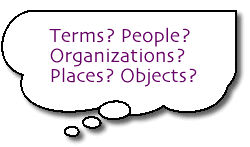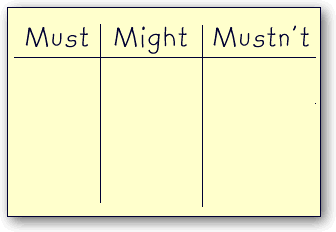|
Internet Explorer - Before you search |
||||||||||||||||
| .......... | This is not a course. It is a... Tip Sheet |
||||||||||||||||
The following information is adapted from pages written by
Bernie Dodge and come from the WebQuest Training Materials at While the search for information may seem to go much faster than before, it will flow even faster if you slow down for a minute and remind yourself of what you're looking for. The simple advice below will take a short time to follow and will save you time in the long run. There are only two steps: 1. Think About Your Topic
|
|||||||||||||||||

